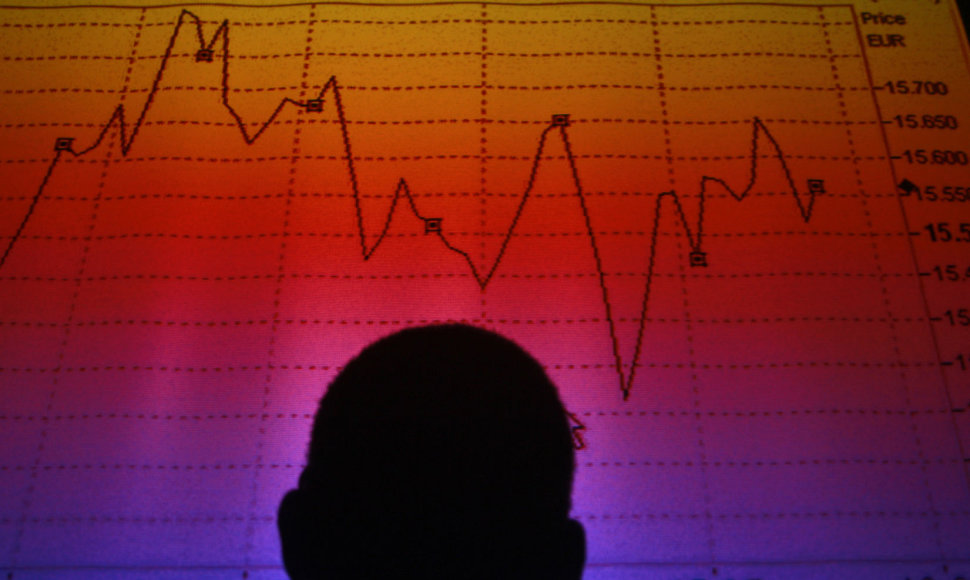What is inflation?
According to the Head of the Department of Financial Engineering of Vilnius Gediminas Technical University (VILNIUS TECH), Associate Professor, Dr Algita Miečinskienė, inflation, in economic terms, is a rise in the general price level, with general being the key word.
"If the price of tomatoes was to double and the price of cucumbers was to be reduced by half, the overall price level would remain the same. If our household likes tomatoes very much then, and does not buy cucumbers, we will feel the increase in the price of tomatoes in the cost of our shopping basket," says Algita Miečinskienė.
When it comes to measuring changes in the general price level, Lithuania mostly uses the consumer price index (CPI), and the European Union’s, HICP – the Harmonised Index of Consumer Prices The methods for calculating them are clearly defined. The product basket, whose price changes are to be assessed, includes a wide variety of goods and services.
According to the Lithuanian Department of Statistics, the ‘statistical basket’ relevant to the CPI consists of 952 representative goods and services. The price of some of them is rising, while that of others is falling. In this way, the average change in the price level is calculated. Some of the aforementioned goods and services people buy regularly, while others are purchased rarely or not at all.
It is not possible to assess the impact of the inflation rate on the expenditure of each individual household directly. If inflation is 2 %, it does not mean that the cost of the shopping basket has increased by 2 %.
What does the rise in prices depend on?
According to Algita Miečinskienė, price changes are influenced by those factors that affect the demand and supply of the product. Many notice that the rental prices of hotels and apartments in resorts during the summer season increase significantly because of the growing demand for them. This is influenced by consumer behaviour – they can and want to take a holiday in the summer and, like many others, do not postpone it to the autumn or winter.
"We had an exceptional situation last summer. Due to the pandemic, travel to foreign countries has been restricted, so there has been an increase in demand for offers in the local market – when supply is limited and demand increases, prices rise. Let’s remember, for example, the prices of disposable masks and disinfectant fluids, which have increased from several to ten and more times since the beginning of the pandemic," says the VILNIUS TECH expert.
The expected changes in product prices also have a significant impact on the rise in prices. Especially in cases where the purchase can potentially be postponed. If you have information that the price of sugar will rise and the canning season is approaching, you will probably decide to buy the product at a lower price and buy more of it than usual.
"If you believe that the price of the product will decrease in the future, and you can postpone the purchase, this reduces the current demand – with the same supply and a decrease in demand, the price decreases. Of course, this will only happen if a large number of market participants behave in such a way," says the head of the Department of Financial Engineering.
According to the VILNIUS TECH associate professor, another important factor is consumer income, as it has a fairly strong effect on demand and prices. In addition to the factors affecting demand that have already been mentioned, important factors such as various trends, changing consumer needs and the prices of other related goods are also important.
"If we look from the perspective of product supply, prices are greatly influenced by changes in the prices of resources and other products used, changes in the number of producers or service providers in the market or even natural conditions. For example, if the number and supply of product producers in the market decreases, but the number of consumers does not change, it is likely that prices will increase," says Algita Miečinskienė.
How often do prices rise and why?
According to the associate professor, price changes are constant. A market in which producers and consumers or supply and demand operate can be equated with scales that weigh prices up or down due to one factor or another. This fluctuation is constant.
‘If we look at it from the standpoint of an individual company, then price is considered to be one of the most flexible tools of competition. In the current market, companies rarely follow a policy of fixed prices, when a company sets a price and does not change it for a long time. Most companies apply flexible pricing and allow buyers to negotiate the price of a product directly or indirectly. A great example is retail chains and their discount systems’, says the VILNIUS TECH expert.
Moderate inflation stimulates the economy. Sellers can increase their wages by earning higher revenue from higher prices.
When will we feel the first price differences?
According to Algita Miečinskienė, in some sectors of the economy — the real estate market is a good example of this, as the demand for residential housing – especially homes, luxury housing – has grown significantly — we can already see the increase in prices if compared to 2020.
"During the pandemic, when there is uncertainty about the future, efforts are made to “employ” savings kept at home or in a bank account. People are looking for safer, albeit less profitable, investment tools. One of them is investing in real estate," says the associate professor.
The VILNIUS TECH expert states that, when it comes to the market for consumer products, predicting changes becomes more difficult. Decreased supply, such as a decline in the number of restaurants, cafés, other businesses in the catering or accommodation sector during the pandemic, can lead to higher prices. It is important to keep in mind that some consumers’ incomes have fallen for the same reason. As a result, demand is also declining. Changes in the price level will also depend on which factor outweighs the other – fall in supply or the fall in demand.
‘The costs of companies surviving the pandemic have risen if compared to their revenues. In the event of a sharp drop in income or no income, people still have to pay for rent, insurance and utilities. This will encourage companies to set prices in the future that will cover the costs and give a profit that will allow the company to continue to exist’, says the expert.
Consumers are reluctant to accept higher prices if they do not see reasons for them to be so, such as improved product quality or a clear rise in raw material prices. It is also worth mentioning another reason for the increase in prices, which is consumer oblivion. Research shows that consumers forget about former prices fairly quickly – a couple of months of a company not working is enough.
After the quarantine, will we spend the money freely?
If in the past, people could not enjoy a walk along the seaside due to the lack of time or money, now they cannot do so to otherwise popular places because of quarantine. People miss the opportunity to choose to either be at home, or walk round the space around the house; and when something is forbidden, the ability to have what you want increases the value of it all. If the value grows, so does the price.
"I have no doubt that for some time people will behave irrationally and spend money more freely. Although part of the population’s income decreased during the quarantine due to job losses, restrictions on self-employment, etc., part of the population had and has the opportunity to save money. The closure of the entertainment, health, and sports clubs, and, in part, the catering sector, has changed how people spend their free time. Working from home also made it possible to save on fuel costs. When all of the restrictions are lifted, people will allow themselves to spend a little more money than usual. But in the long run, it will stabilise," says Algita Miečinskienė.
Leave the interpreting to us! Translated by Pasaulio spalvos http://www.pasauliospalvos.lt/













